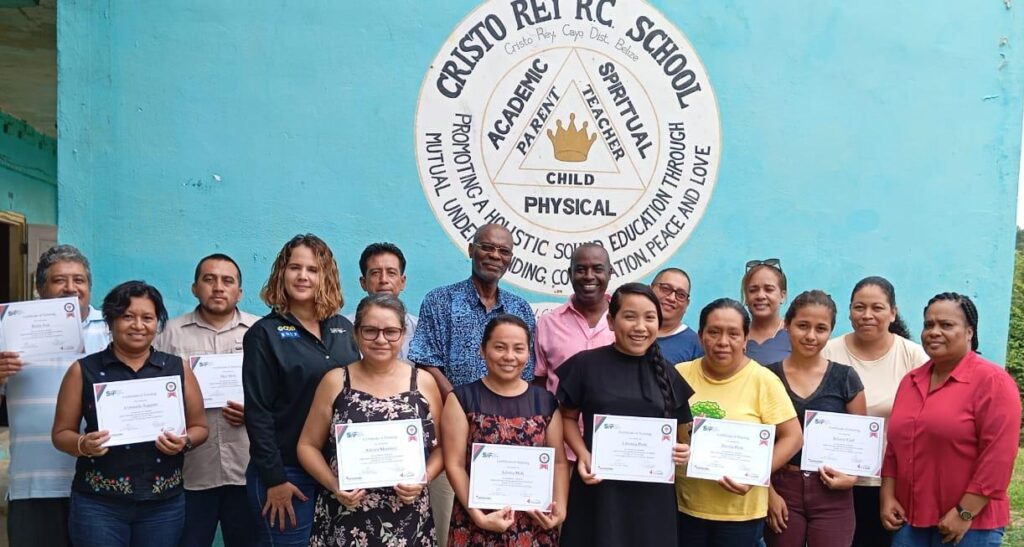Beekeeping in Dolores: Building Hives, Improving Lives
Video: How beekeeping is changing lives
Dolores is a municipality in the Philippines that boasts abundant vegetation and agricultural landscape based at the foot of Mount Banahaw. The municipality dedicates over 3,000 hectares dedicated to farming vegetables and fruits tended by about 2,800 farmers. For CESO and its local partners, it’s an ideal place to pilot a beekeeping project.
In 2010, Mayor Renato Alilio along with municipal staff and community members participated in a workshop led by CESO and the National Apiculture Research Training and Development Institute (NARTDI) on apiculture. For CESO and NARTDI, the goal was to encourage municipalities to include beekeeping as a priority project, which will create livelihood and employment, as well as to increase agricultural productivity. After the workshop, the municipality of Dolores decided to invest in the project and encouraged its citizens to do the same. Starting with two bee colonies purchased from a beekeeper in a neighbouring province, beekeeping gradually became part of the community fabric of Dolores. Farmers and regular citizens attended workshops on apiculture offered by South Luzon State University (SLSU), including Rico Acuna, a municipal councillor.
After the workshop, the municipality of Dolores decided to invest in the project and encouraged its citizens to do the same. Starting with two bee colonies purchased from a beekeeper in a neighbouring province, beekeeping gradually became part of the community fabric of Dolores. Farmers and regular citizens attended workshops on apiculture offered by South Luzon State University (SLSU), including Rico Acuna, a municipal councillor.
Aside from honey production of bees, Rico was interested in the varied types of bees and the immense power of the little creatures. Soon after attending workshops, he started a bee farm with two colonies. He concentrated on learning how to produce queens and expand the bee population. The natural abundance of nectar in Dolores helped him to rapidly multiply two colonies to 81. Even more impressive is the immediate effect of this new found hobby on his existing fruit farm where the trees bore larger and better tasting fruits.
Such outcomes were not unique to Rico’s farm. Anniewanda Reyes, the municipality’s resident agriculturist, reported a significant increase in vegetable and fruit production in the municipality since bee farms were introduced. Over time, her team observed patterns of the bees as they gathered nectar and pollinated several hundreds of vegetable and fruit farms around the town. According to her, the average yield increase for eggplant, tomato, squash, beans, mango, rambutan and bitter gourd almost doubled. Aside from increase in production, the produce grew in size. Consequently, farmers increased their income by more than 100%, which positively impacted their quality of life with more money allocated for education of their children and their daily needs. “When DTI Provincial Director Marcy Alcantara and CESO Country Representative Matt Navalta invited us to join the beekeeping workshop in January 2010, we were not really that interested but we decided to participate anyway. We did not expect that after a short period, we can already see the benefits of this beekeeping project. Hence, we are now very overwhelmed with the impact of the bees to our agriculture and the additional income that they bring to our farmers,” shares Mayor Alilio on how the project evolved in his township.
“When DTI Provincial Director Marcy Alcantara and CESO Country Representative Matt Navalta invited us to join the beekeeping workshop in January 2010, we were not really that interested but we decided to participate anyway. We did not expect that after a short period, we can already see the benefits of this beekeeping project. Hence, we are now very overwhelmed with the impact of the bees to our agriculture and the additional income that they bring to our farmers,” shares Mayor Alilio on how the project evolved in his township.
Under the Volunteer Cooperation Program funded by the Government of Canada and in partnership with local institutions, CESO sent Canadian beekeeping experts to Quezon to enhance technical knowledge and capacity of local apiculturists. While doing so, the experts also conducted training and provided technical assistance to beekeepers in Dolores to improve their hive management. In addition to specific beekeeping assignments, CESO also provided functional business assistance through its partnership with DTI, ensuring beekeepers and business owners can promote, market, and sell their bee products. As for Rico, he has expanded his farm, known to locals and visitors as Mt. Banahaw Bee Farm, to offer services and products on beekeeping. “I did not imagine that my bee farm would become popular. I’m really amazed that people from other places, who are interested in beekeeping, are visiting my apiary and asking me information on how to start and operate a bee farm. I suddenly became a resource person on beekeeping!”
As for Rico, he has expanded his farm, known to locals and visitors as Mt. Banahaw Bee Farm, to offer services and products on beekeeping. “I did not imagine that my bee farm would become popular. I’m really amazed that people from other places, who are interested in beekeeping, are visiting my apiary and asking me information on how to start and operate a bee farm. I suddenly became a resource person on beekeeping!”
He has also ventured into culturing native, stingless bees. Together with his wife, Beth, they expanded the business. Eventually, Mt. Banahaw Bee Farm added a two-room bed and breakfast facility and a small boutique to sell their products. They hired local farmers and beekeepers for help. Looking to the future, Rico looked to CESO for support on developing a website and a long-term business plan.
“I would be forever grateful for this opportunity that was given to me. My bee farm project has not only provided me with additional income but it also benefited our vegetable and fruit farmers who were able to increase their yield due to pollination services provided by bees. Our municipality is also receiving visitors because of our beekeeping project and people would be able to appreciate the beauty of our place and the agricultural products that we offer here.”


